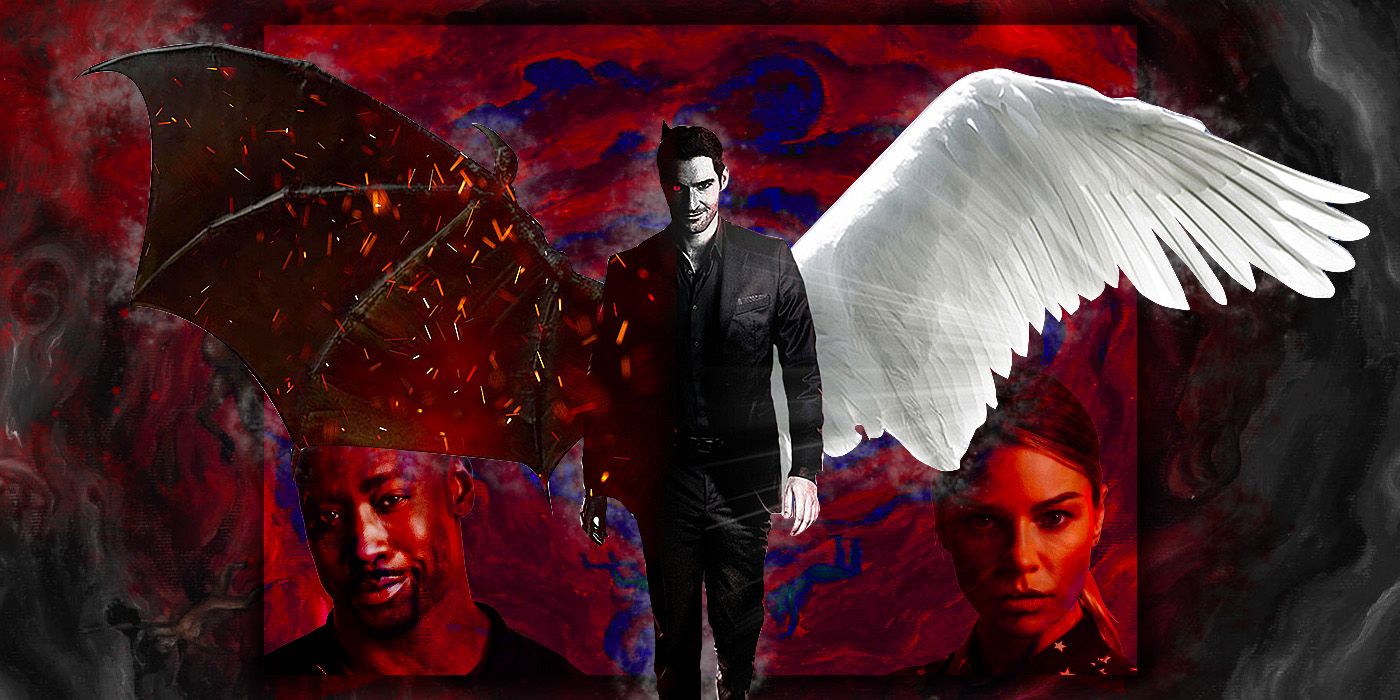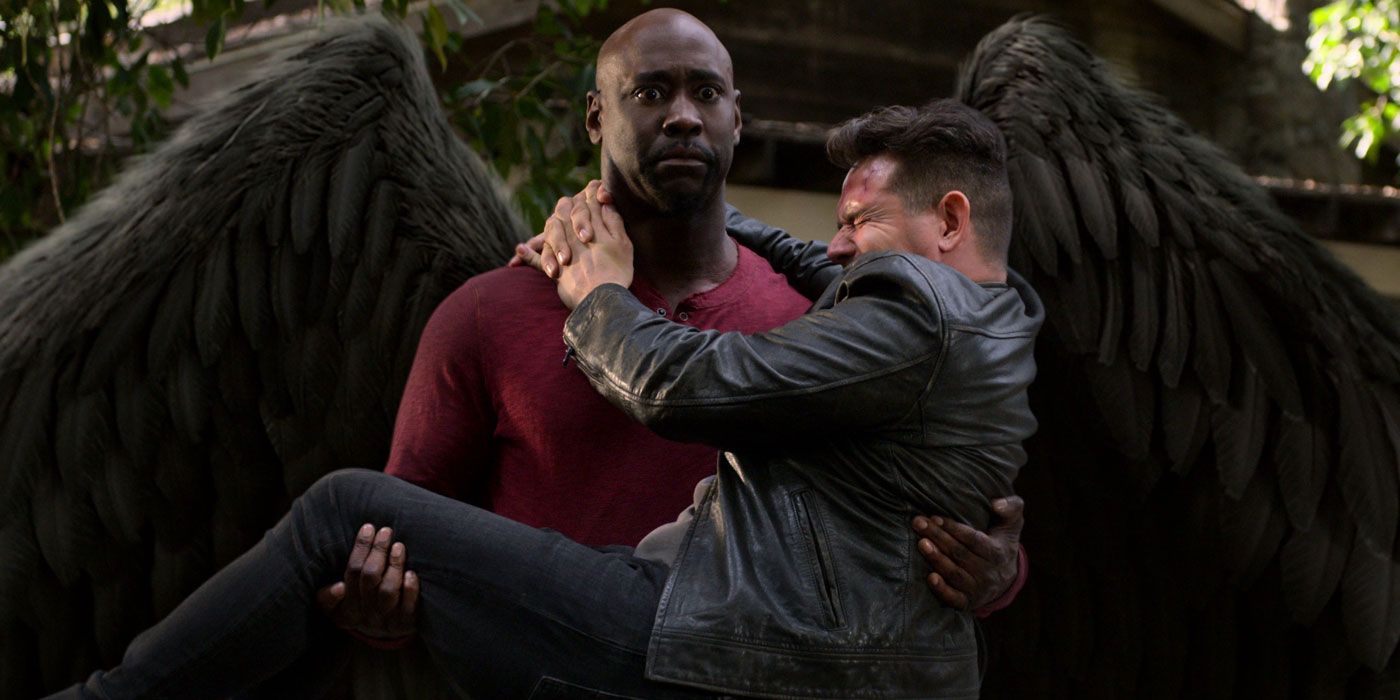[Editor's note: The following contains spoilers through the series finale of Lucifer, "Partners 'Til the End."]
When the surprise cliffhanger ending of Lucifer Season 5 revealed that after all these years and no shortage of battles, Lucifer (Tom Ellis) was now finally poised to take on the mantle of God, the big question for Season 6 became "what happens after that?" After all, becoming God felt like a pretty final note for the series to conclude with — yet 10 more episodes of the show were in the works.
Turns out that showrunners Joe Henderson and Ildy Modrovich had a few twists in store. Season 6 begins with Lucifer getting ready to ascend to his new celestial role, but also clearly postponing the decision — making excuses, essentially, while dealing with the surprise appearance of Rory (Brianna Hildebrand), his very pissed-off daughter from the future.
Eventually, he realizes that's not where his path lies, something the writers knew well before then. According to Modrovich, even when working on Season 5, "we knew that it was not ever his destiny — it never felt right for him to be God. What felt right is for him to give back what he learned. What his unique perspective was."
After all, as she continued, "he knows what it's like to be the fallen one. He knows what it's like to self-hate and to not feel like he's worthy, and that was his superpower." So by not taking on the job, Lucifer has to leave behind his beloved Chloe (Lauren German) on Earth, but in Hell he's able to help "the Dans of the world, who put themselves there because of self-imposed guilt that maybe they don't deserve. So it just always felt right that he take that role on."
It's a decision that makes a lot of sense for the character, who first started the process of therapy in Season 1, something which Ellis felt was the right choice.
"I felt like the neat and tidy version of Lucifer would be to go from being the devil to being God. But actually, I’m all about the journey," he told Collider's Christina Radish in an extended interview, soon to be published. "The point of Lucifer using his experience on Earth and what he’d learned from all of these different things, rather than just going to a place like Heaven, he actually goes to a place that really needs it. Realizing that souls can still be saved, after they’d been damned was a huge turning point, utilizing what he’d learned to essentially go and do what his calling was and run Hell his way. I loved that notion."
As Henderson said, "It was one of those things where we just started to realize, okay, well, what is, what is the culmination of this character? And it's that Hell is a reflection of Lucifer. When he was down there, he tortured himself and people tortured themselves. Lucifer now believes in redemption and so he is now getting Hell to reflect this new version of themselves."
So while Lucifer never ends up becoming God, the job doesn't stay vacant — instead, Amenadiel (D.B. Woodside) steps up to ascend. And as Ellis explains, this ends up being the best choice for everyone involved: "Amenadiel being God just felt so appropriate. Especially since he also had worked with mankind, he also knows what it’s like to be a father. I just feel like his innate wisdom and his innate presence as an angel suggested that he would be a much stronger God than Lucifer would be."
In the end, everyone gets what's best for them — the truest sort of happy ending.
Lucifer Season 6 is streaming now on Netflix.



